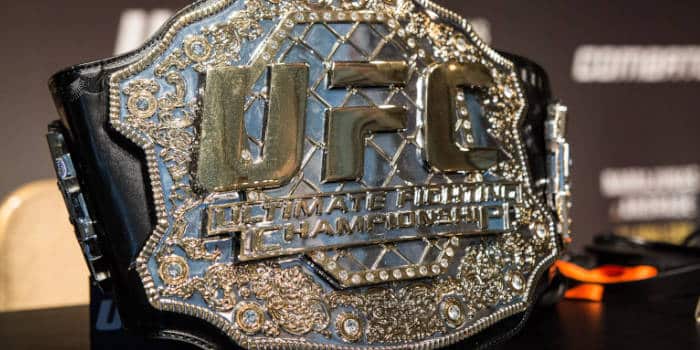- Casino
- By State
- Alabama
- Alaska
- Arizona
- Arkansas
- California
- Colorado
- Connecticut
- Delaware
- Georgia
- Florida
- Hawaii
- Idaho
- Illinois
- Indiana
- Iowa
- Kansas
- Kentucky
- Louisiana
- Maine
- Massachusetts
- Maryland
- Michigan
- Minnesota
- Mississippi
- Missouri
- Montana
- Nebraska
- Nevada
- New Hampshire
- New Jersey
- New Mexico
- New York
- North Carolina
- North Dakota
- Ohio
- Oklahoma
- Oregon
- Pennsylvania
- Rhode Island
- South Carolina
- South Dakota
- Tennessee
- Texas
- Utah
- Vermont
- Virginia
- Washington
- West Virginia
- Wisconsin
- Wyoming
- By State
- Slots
- Poker
- Sports
- Esports
Washington Post Editorial Questions the Wisdom of Sports Betting Legalization
The influential media publication has offered a sobering account of the sports betting status quo and whether inviting regulated sportsbooks was the right thing to do

Enjoying tens of millions of readers, The Washington Post’s editorial addresses have long been considered some of the most influential in the United States. Now, the Jeff Bezos-owned newspaper has aimed at one of the hottest issues of the day – the mass legalization of sports gambling in the country.
Is Sports Betting Legalization a Bad Bet?
In an op-ed piece published on Monday and titled “Legalizing Sports Gambling Was a Terrible Bet,” the newspaper’s 11 editors have produced a lengthy account of the status quo regarding sports gambling, and why they think that things have gone wrong, citing all sorts of societal ills and sports scandals now grabbing headlines.
But this stipulation is combated by the fact that the very legalization of sports gambling made it possible for much of the current level of monitoring to happen in the first place.
In other words, sports bettors and athletes are monitored by sportsbooks for aberrant behavior, which has already cost Jontay Porter his career, and put dozens of professional and college athletes in the spotlight. Yet, some of the issues that have arisen (to wit abuse of professional and college-level athletes) are undeniable.
However, The Post does not argue against the legalization of sports gambling as such, but rather how sportsbooks have seized the day.
“Legalized sports betting was supposed to enable gambling companies to identify and weed out problem bettors. Instead, the opposite has happened: High rollers who lose are targeted and courted as VIPs, showered with quick credit and other perks, and encouraged to gamble more — to ‘chase’ their losses, in industry parlance. Those who actually win big get limits imposed on how much they can bet,” an excerpt from the op-ed piece reads, urging Congress to step in and act.
The Left and the Right Are Assaulting Sports Gambling
The Post has similarly taken issue with the claim that the legalization of sports gambling would reduce the impact of offshore sports betting sites, boost revenues to the state, and usher in other benefits – most of which have failed to materialize, the publication said.
Now, this claim too is rather easily assailable on the face of it. Offshore gambling websites, such as Bovada and BetOnline have faced increased scrutiny by newly established gambling regulators who were made aware of the benefits of online gambling and started to jealously guard the local market from offshore sites.
Similarly, the Post is not the only publication to have gone after sports gambling and its legalization. In an article published in mid-December by Gunjan Banerji in the Wall Street Journal, the contributor compared the issues arising from sports gambling to “crack cocaine” for men.
The argument goes that sports betting companies understand that men are more susceptible to influences when it comes to sports gambling and may be even vulnerable to industry advertisements.
The upshot is that for not an insignificant number the consequences could be financial, emotional, and social.
Congress Should Not Waste Time But Act in Sports Betting Case
Not only that, but the reach of the black market is indeed decreasing, according to the American Gaming Association, a trade group that monitors market performance, and has been all the more active now that online gambling has arrived and is regulated in the country.
The Post said that concrete problems can be traced to sports gambling already and that it’s high time that Congress acted. “It shouldn’t take another six years for those concerns, finally, to be heeded — and translated into national reform,” the Post concluded.
Related Topics:
Although Fiona doesn't have a long-spanning background within the gambling industry, she is an incredibly skilled journalist who has built a strong interest in the constantly growing iGaming network. The team at Gambling News is glad to have her on our roster to help deliver the best stories as soon as they hit. Aside from writing, she loves to dabble in online casino games such as slots and roulette, both for her own enjoyment and also as research to better improve her understanding of the industry.
Previous Article

Industry
January 2, 2025
Wolves vs. Nottingham Forest 2025 Premier League Odds, Time, and Prediction

Must Read
More Articles



Casino
July 8, 2025
WinStar Casino Shooting Suspect Still Missing

Industry
July 8, 2025
Trump’s Gambling Tax Cap Draws Divided Opinions














